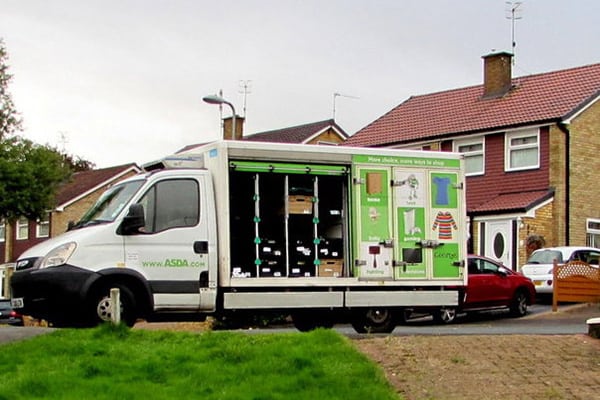The online share of grocery sales at UK supermarkets doubled to 12.5% in the last four weeks ending 26th December 2020. This is up from online’s 6.7% share of sales during the same time in 2019, in what was the biggest December on record, reveals new data released today by Nielsen.
This rise is due to a total of 8.5m households, just over 30% of all households, shopping for their Christmas groceries online, an increase from 5.7m households over the Christmas period in 2019. While visits to stores declined by 10%, overall and including online, shoppers increased their spend per visit to an average of £20, up from £17 a year ago, the biggest ever spend per visit during the Christmas period, and only slightly lower than the all-time high of £22 recorded at the height of the lockdown in May.
Nielsen data shows that in the four weeks ending 26th December, a total of almost £12bn was spent at UK supermarkets, with £1.3bn spent online. However, with the closure of hospitality venues, and additional pandemic restrictions signposted mid-December, households planned for smaller family celebrations this Christmas, all which may have held back some spend in the final two weeks leading up to 24th December.
With COVID-19 restrictions also impacting social gatherings and large family celebrations, purchasing fell heavily on the immediate family and not extended family and friends, as many consumers took the opportunity to enjoy a less traditional Christmas meal.
This is reflected in Nielsen’s data, which shows increasing sales for less traditional meal items such as frozen dumplings (+77%), beef fillets, medallions, and steaks (+57%) and fresh sea bass (+48%). There was also a surge in demand for more convenience food such as frozen croissants (+70%), coffee pods (+56%) and handheld ice creams (+45%). With fewer socialising and gifting opportunities, sales of confectionery (+2%) were subdued.
Beer, wine and spirits was the fastest growing category overall and traditional indulgences were still popular with consumers, with sales up for champagne (+18%) and crémant sparkling wine (+51%). Many consumers also marked the festivities by experimenting with cocktail making, with a significant increase in sales for tequila (+59%), flavoured vodka (+50%) and spiced rum (+47%)³.
In terms of retailer performance over the last 12 weeks ending 26th December, Lidl led the growth (+20.9%) followed by Morrisons (+9.2%) which led growth among the ‘big four’ retailers.
Mike Watkins, Nielsen’s UK Head of Retailer and Business Insight, says: “2020 marks the first Christmas where online shopping played a significant role in consumers’ shopping behaviours, with 85% of the incremental sales in food and drink made online in the last four weeks ending 26th December. Although overall grocery growth was a little lower than in November, this takes into account the many challenges consumers faced around restrictions and cancelled Christmas plans.”
Watkins continues: “It has certainly been an unusual Christmas for us all, and this has affected purchasing decisions. The pandemic has changed how we live, shop and consume and despite consumers celebrating the festivities in smaller groups, food and drink remained at the heart of celebrations. With fewer people to entertain and cater for, many households took the opportunity to enjoy less traditional meals.”
Many find it inconvenient
While consumers are using online grocery more than ever, many do so out of necessity rather than a love of the service, with more than a third seeing it as an inconvenience rather than a boon.
Research by Ubamarket finds that 38% of UK shoppers have used online shopping more since lockdown, but have found it inefficient due to insufficient delivery slots and replacement items.
This result is bound to cause an increase in consumer footfall among the UK’s supermarkets and shops, as well as fluctuations in consumer behaviour, as they are influenced by the shoppers around them, says the company.
Will Broome, CEO of Ubamarket says: “It is encouraging to see that Britain’s retailers and grocers are committed to reassuring customers and ensuring that they are able to provide essential goods without disruption. With the lockdown now fully in effect, it is incredibly likely that consumer demand will fluctuate and retailers may find this difficult to cater to, as they are unable to communicate directly with their customers to inform them of what the conditions are like in-store.”
He adds: “Ubamarket’s Scan, Pay, Go! app allows customers to avoid any unnecessary trips to the shops and cut down the time they spend in-store by checking stock in advance; by building their shopping lists beforehand, they will be guided around the store in the most efficient way possible. The implementation of retail technology is one way that Britain’s retailers could safeguard themselves against this fluctuating demand and irregular consumer behaviour. With this, supermarkets and stores can access far more in-depth and accurate consumer data, helping them to assess their behaviour, manage stock more efficiently and effectively, whilst being able to effectively communicate directly to the consumer base.”










